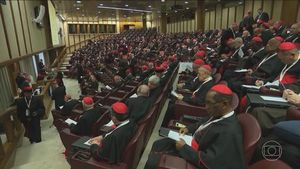Transport for London (TfL) is taking steps to regulate the previously unregulated pedicab market, aiming to bring greater safety and consistency to these unique vehicles on the streets of London. Following the introduction of the Pedicabs (London) Act last year, which granted TfL the authority to implement regulations, the organization has initiated public consultations to gather feedback on proposed changes. The consultation is set to conclude on March 7, 2025, providing citizens with the opportunity to voice their thoughts on these forthcoming regulations.
Currently, many pedicab drivers operate without any formal oversight. The lack of regulation has resulted in significant consumer complaints, particularly concerning exorbitant fares charged for short journeys. According to TfL, some customers have reported 'well-documented rip-off fares.' A particularly egregious incident involved one rider who was charged £500 for merely a 10-minute ride from Mayfair to Soho. Another couple was charged £380 for less than a mile, prompting concerns over fare consistency within the pedicab industry.
To address these issues, TfL has proposed several key regulations. Pedicab drivers would be required to hold one-year licenses, mirroring regulations applied to taxis and private hire vehicles (PHVs). The licensing process would necessitate passing background checks, demonstrating proficiency through a theory test, and ensuring English language skills. Safety will also be prioritized, as drivers might be required to wear safety equipment such as high-visibility jackets and undergo regular vehicle inspections to verify roadworthiness.
TfL has also highlighted the need for standardized fare structures to prevent overcharging. Various models for fare calculations have been suggested, including time-based, distance-based, or zone-based systems. The intention is to create clarity for passengers and avoid the randomness currently inherent in pedicab pricing.
The public consultation's launch prompted responses from local stakeholders, including pedicab drivers themselves. Friedel Schroder, chairman of the London Pedicab Operators Association (LPOA), emphasized the need for regulation, citing the importance of ensuring safe standards without imposing excessive restrictions. "We oppose over-regulation which ends good and bad operators alike," he remarked, insisting on the importance of maintaining jobs within the industry.
TfL is also considering significant noise regulations aimed at mitigating disruptive behaviors. Public surveys will assess preferences for possible restrictions on loud music played from pedicabs during specific hours. Overall, the proposed regulations aim to transform the pedicabs experience, ensuring they remain enjoyable and safety-compliant for both locals and tourists.
According to Will Norman, the Walking and Cycling Commissioner, these proposed changes are not merely regulatory. They represent efforts to preserve the fun and sustainable aspects of pedicabs. Without appropriate regulations, some drivers reportedly engage in antisocial behavior or unsafe practices, detracting from the positive appeal of this unique mode of transport.
London's pedicabs, which have been around since 1998, have experienced considerable growth. These vehicles were only classified under outdated laws, creating loopholes and gaps within the legislation. The current moves by TfL signify meaningful strides toward adapting older laws to the realities of London’s contemporary transport needs.
The public has been invited to share their opinions on the proposals through various channels, emphasizing the role of community feedback. TfL indicated its commitment to reviewing the responses during the formation of regulations, integrating public sentiment and expert opinions to design the most effective rules for this niche sector.
With the closing date for public consultation nearing, industry representatives and customers alike await TfL's action. The outcome of this process will undoubtedly shape the future of pedicabs, impacting hundreds of operators and thousands of passengers each year. If implemented, the new regulations could provide peace of mind for riders and clarity for drivers, potentially changing London’s streets for the best.
These discussions signify cautious optimism for the future of the pedicab industry. Stakeholders from both the regulatory body and the operational side recognize the need for balancing safe, fair rides against the livelihoods of those who rely on this mode of transport.



